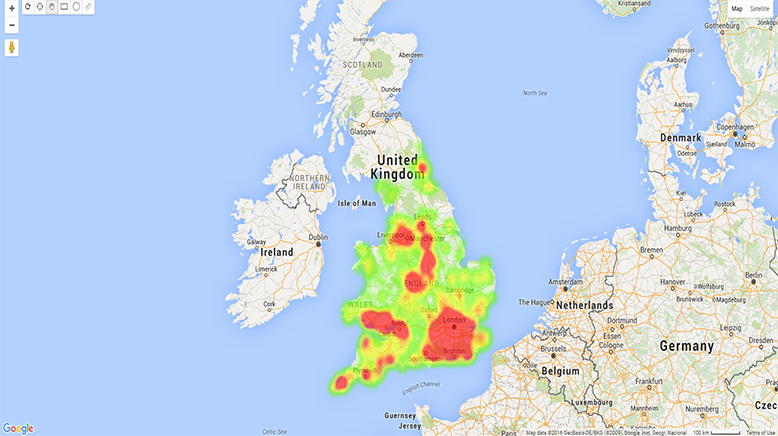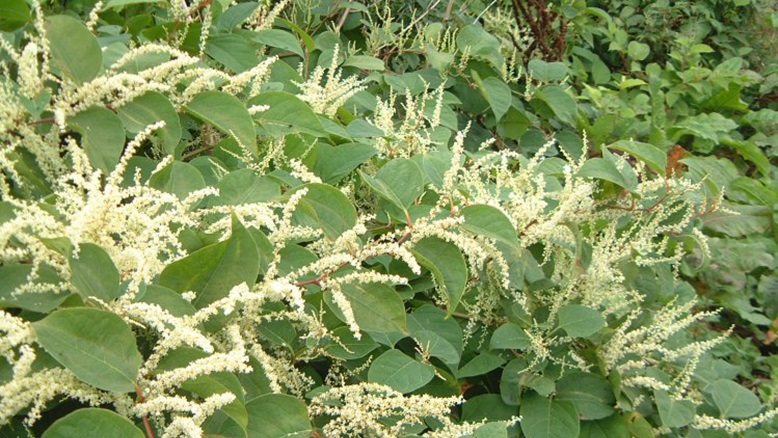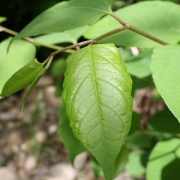New YouGov research suggests a high level of anxiety around Japanese knotweed and alarming levels of myth and misinformation.
New research released today reveals that 78% of those aware of the infamous Japanese knotweed would be put off buying a property if they discovered the weed was present in the garden. Reasons for this included the concern that it cannot always be removed (69%) or that it would be too costly (56%) or time consuming to do so (57%).
The survey, carried out by YouGov and Japanese knotweed removal specialist Environet UK, suggests whilst many are aware of the weed, there is a high level of myth and misinformation around the threat posed by Japanese knotweed and the options available to homeowners who discover it on their land.
Japanese knotweed was first introduced into the UK from Japan in the 1850s as an ornamental plant, but it is now number one on the Environment Agency’s list of the UK’s most invasive plant species, described as “indisputably the UK’s most aggressive, destructive and invasive plant”. Growing up to 3 metres in height, it spreads rapidly and can push up through asphalt, cracks in concrete, driveways, cavity walls and drains in its quest for light and water.
Despite only 4% of those aware of the weed having had Japanese knotweed growing on their property, awareness of the threat is high, with 75% of Brits knowing about it. This awareness is particularly high in areas where the spread of the weed has been most prolific according to Environet’s own records of treatment, such as Wales, where 95% of respondents are aware of it, and in the south of England (80%).

Those aware of the plant are also largely oblivious to their legal obligations to deal with Japanese knotweed if it is discovered on their land. Only around half (49%) know that a homeowner is legally responsible for preventing it from spreading from their property, and just around one in five (21%) are aware that they could receive an ASBO if knotweed on their land is allowed to spread to their neighbour’s garden.
In fact, knotweed can now be completely removed within a matter of days, at any time of the year, using a digging out method that sifts the earth to remove all viable rhizome roots from the infected soil. Once the problem has been swiftly tackled and an insurance backed guarantee has been secured, there are no difficulties in obtaining mortgage finance and property sales can proceed unhindered. For worried homebuyers, a professional indemnity insurance policy is now available, enabling them to protect themselves from the risk of Japanese knotweed from as little as £67. Despite this fact, only 3% of those aware of the weed said they would not be at all deterred from buying an affected property.
Nic Seal, MD and Founder of Environet comments “Homeowners are right to be concerned about the threat posed by Japanese knotweed. Attempting to deal with it by cutting it down repeatedly, burning it, burying it or using common weed killers simply won’t work as the plant can lie dormant beneath the ground, only to strike again when people least expect it.
“Yet for those wishing to buy or sell a property, it doesn’t have to be a deal breaker. Japanese knotweed can be dealt with once and for all, within a matter of days from discovery, so there is hope for buyers who may have otherwise walked away from their dream home.”
Chartered Surveyor Philip Santo FRICS, Director at Philip Santo & Co, added “RICS shares concerns that many people believe Japanese Knotweed poses a much greater risk than it really does. Since RICS issued guidance in 2012 the situation for buyers and sellers has greatly improved. For most affected properties there is now access to mortgage finance once an approved Japanese Knotweed Management Plan is in place. DIY remedies can make matters worse and should not be attempted.”











Leave a Reply
Want to join the discussion?Feel free to contribute!